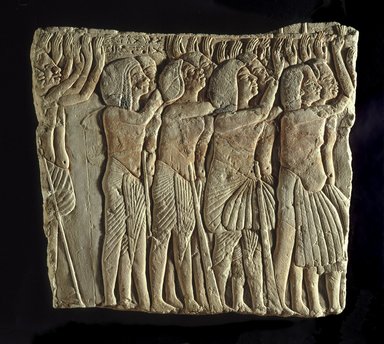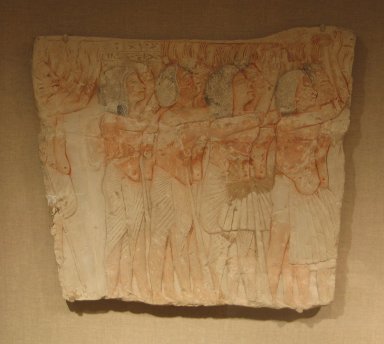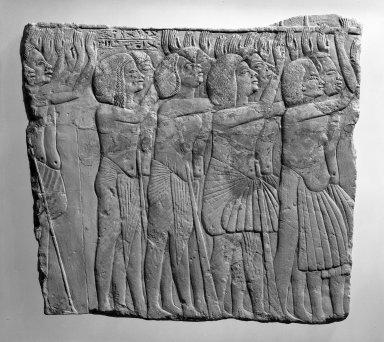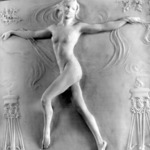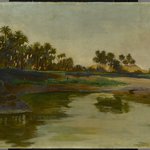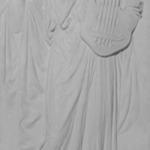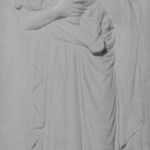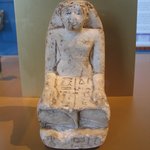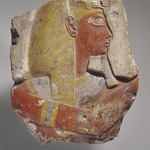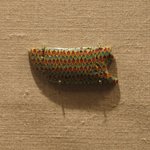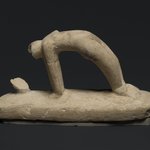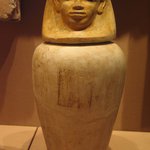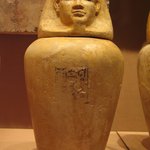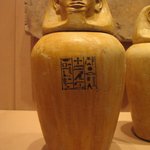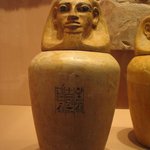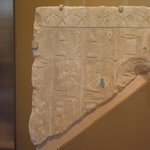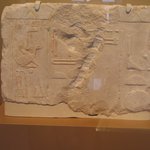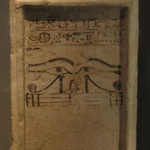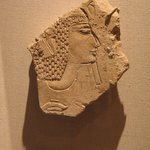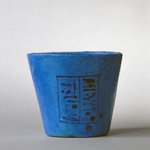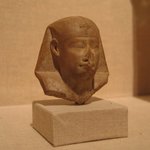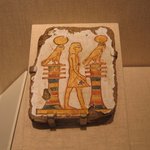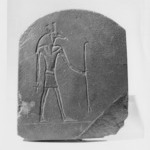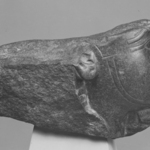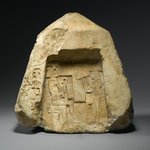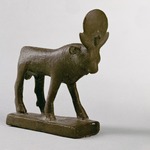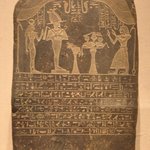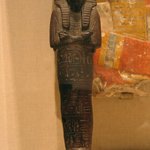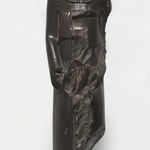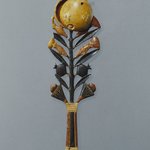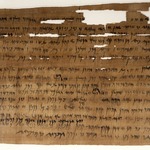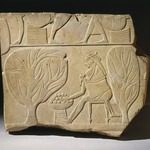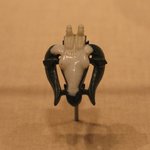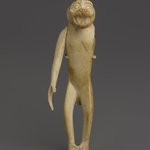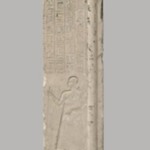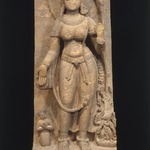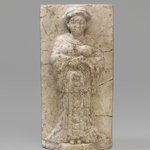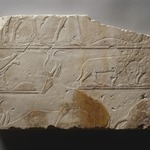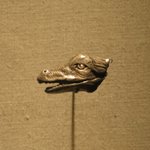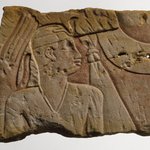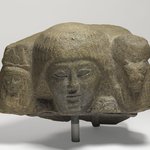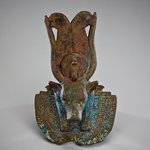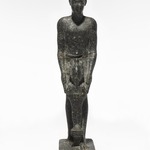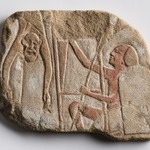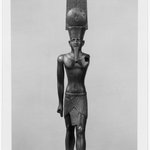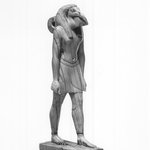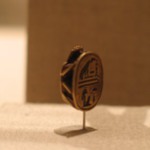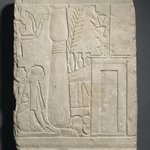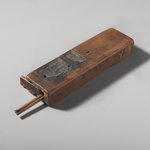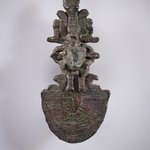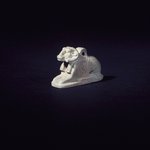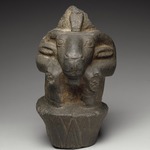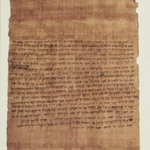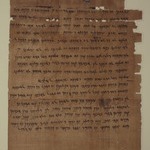Soldiers Honoring Their Lord
Egyptian, Classical, Ancient Near Eastern Art
On View: 19th Dynasty to Roman Period, Martha A. and Robert S. Rubin Gallery, 3rd Floor
The kings of the Eighteenth Dynasty extended Egyptian military influence from the Euphrates River in modern Iraq to sub-Saharan Africa. Their army consisted of highly trained professional soldiers led by an able officer corps drawn from the ranks of the Egyptian nobility.
This relief shows a group of such soldiers resting their staves on the ground and raising their arms in a gesture of veneration toward either the ruling monarch or their general. Note the wide range of ethnic types—no doubt an accurate reflection of the composition of the Egyptian military during the New Kingdom.
MEDIUM
Limestone, pigment
DATES
ca. 1336–1327 B.C.E.
DYNASTY
late Dynasty 18
PERIOD
New Kingdom, Amarna Period
DIMENSIONS
16 7/16 x 14 7/16 in. (41.8 x 36.6 cm)
(show scale)
ACCESSION NUMBER
32.103
CREDIT LINE
Charles Edwin Wilbour Fund
PROVENANCE
Archaeological provenance not yet documented, possibly from the Tomb of Horemheb at Memphis, Egypt; by 1932, acquired by Edouard Jonas of Paris, France and New York, Ny; 1932, purchased from Edouard Jonas by the Brooklyn Museum.
Provenance FAQ
CATALOGUE DESCRIPTION
Fragment of painted limestone raised relief. Group of military men are acclaiming the rewarding of General Horemheb. Right arm of Horemheb at extreme upper right corner. Two lines of incised inscription at top left center.
Inscription: “Standard Bearer to the cavalry squadron of Meryt-Aten (named Khai)” or “Standard bearer of the regiment, Love of the Aten, Minka’y.”
Condition: Good. Minor chips at edges. Paint faded and is missing in sections.
CAPTION
Soldiers Honoring Their Lord, ca. 1336–1327 B.C.E. Limestone, pigment, 16 7/16 x 14 7/16 in. (41.8 x 36.6 cm). Brooklyn Museum, Charles Edwin Wilbour Fund, 32.103. Creative Commons-BY (Photo: Brooklyn Museum, 32.103_SL1.jpg)
IMAGE
overall, 32.103_SL1.jpg. Brooklyn Museum photograph
"CUR" at the beginning of an image file name means that the image was created by a curatorial staff member. These study images may be digital point-and-shoot photographs, when we don\'t yet have high-quality studio photography, or they may be scans of older negatives, slides, or photographic prints, providing historical documentation of the object.
RIGHTS STATEMENT
Creative Commons-BY
You may download and use Brooklyn Museum images of this three-dimensional work in accordance with a
Creative Commons license. Fair use, as understood under the United States Copyright Act, may also apply.
Please include caption information from this page and credit the Brooklyn Museum. If you need a high resolution file, please fill out our online
application form (charges apply).
For further information about copyright, we recommend resources at the
United States Library of Congress,
Cornell University,
Copyright and Cultural Institutions: Guidelines for U.S. Libraries, Archives, and Museums, and
Copyright Watch.
For more information about the Museum's rights project, including how rights types are assigned, please see our
blog posts on copyright.
If you have any information regarding this work and rights to it, please contact
copyright@brooklynmuseum.org.
RECORD COMPLETENESS
Not every record you will find here is complete. More information is available for some works than for others, and some entries have been updated more recently. Records are frequently reviewed and revised, and
we welcome any additional information you might have.
Is this the Soldiers Honoring their Lord? Can you please tell me more about this piece? The story of the relief? Can you tell me some visual characteristic that I should pay attention to?
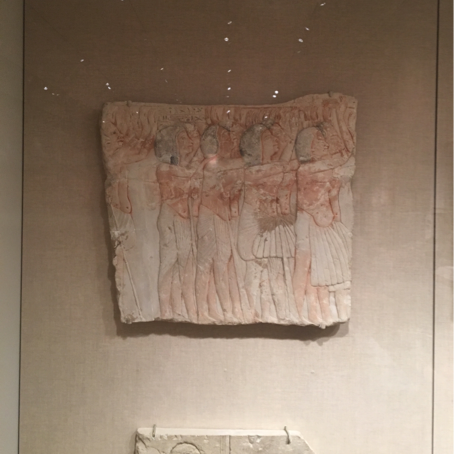
Yes it is! You may have read in the label that these soldiers have rested their weapons on the ground and are raising their arms in veneration of their general or king. You may also notice that multiple ethnicities are represented here. You can tell the difference between people by their hair styles and facial features. The Ancient Egyptian army was made up of men from all over the area they controlled which, during the New Kingdom, included land from Sub-Saharan Africa to Mesopotamia.
The body shapes seen here are also visually interesting. Ancient Egyptian depictions of the human form are usually pretty regimented, but here you can see bodies of different shapes and sizes. The rounded-out style was common during the reign of Akhenaten when this relief was produced. You can compare that to the art styles before and after his reign and you'll notice a difference.
Okay I will.
There's also a bust of Akhenaten in the center gallery that highlights the rounded style. It represents the king these soldiers may be honoring!
